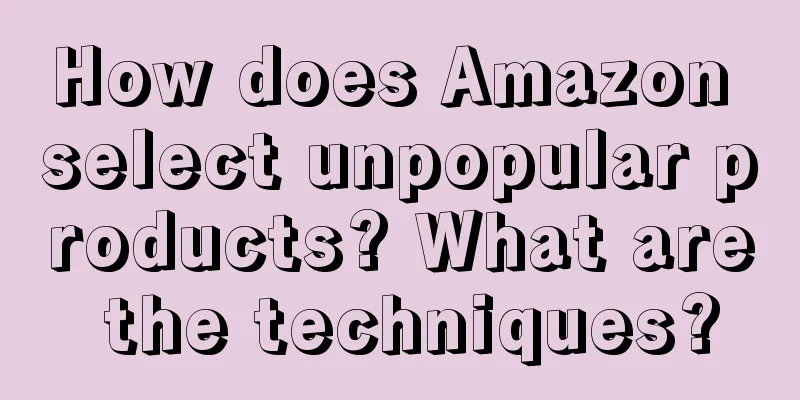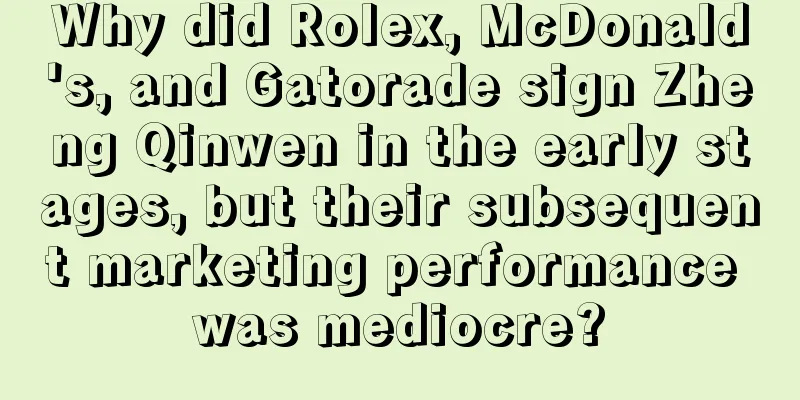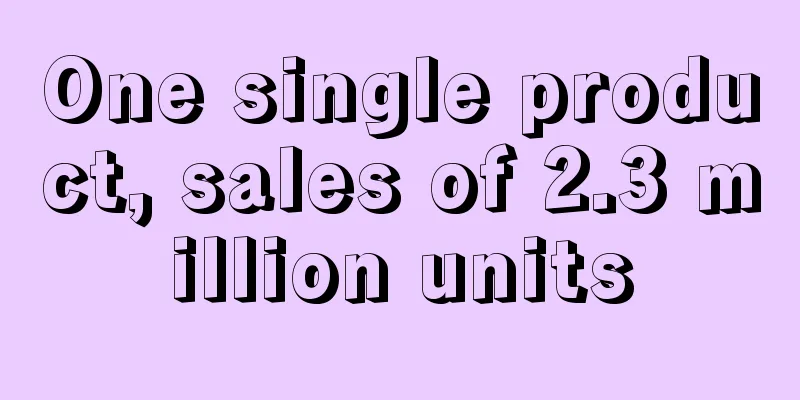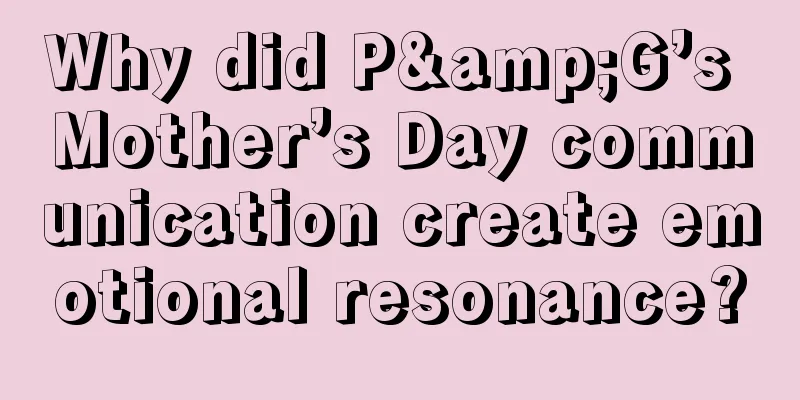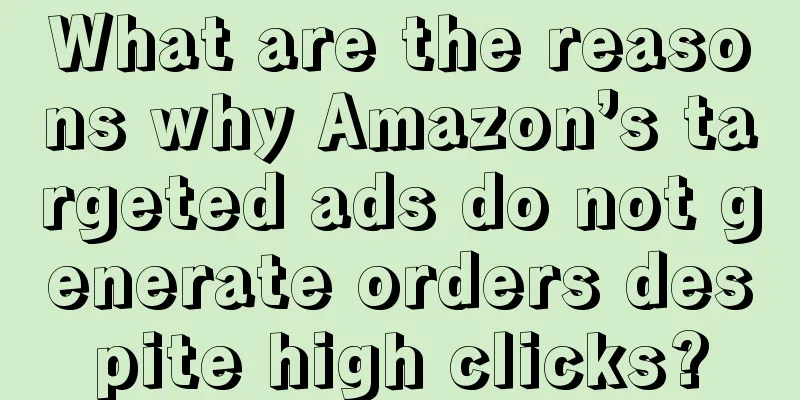Let marketers understand the "N" tricks of Olympic marketing for "big and small brands"
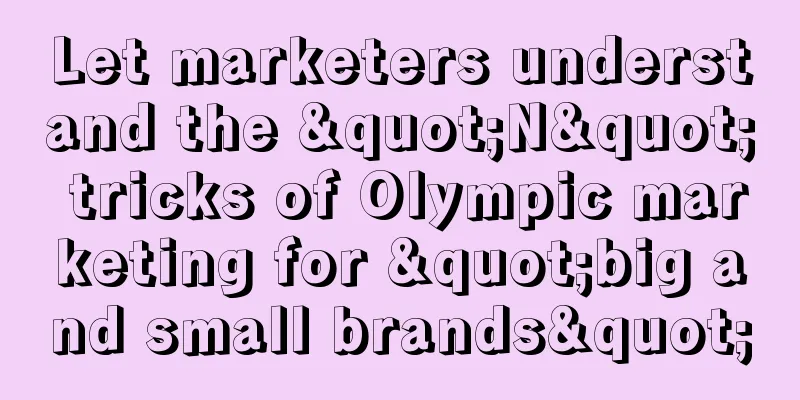
With less than a day to go before the opening of the Paris Olympics, the global brand marketing war has entered a white-hot stage. In 2024, the big year for sports, brands from all fields and even all scales are showing off their skills in order to catch the huge traffic from the Olympics. For example, Mengniu and Alibaba have become the top partners of the Olympics with their wealth and power, and their promotion can be seen everywhere on social platforms and major landmarks in Paris; tea brands such as Heytea and Bawang Chaji have all thought of opening stores in Paris, focusing on off-site services for the audience; and Yili took advantage of the hot topic of "Paris emblem x Luyu's avatar" at once, and cleverly used the topic to spread its brand. In addition, there are also small and medium-sized brands signing contracts for niche competition events, hoping to reap the Olympic traffic dividend by betting on athletes... Regardless of the approach, brands are actually looking for the Olympic marketing method that suits them best. Today, Morketing will take you to look at how international big brands and small and medium-sized brands conduct marketing around the Paris Olympics, and what are the differences and characteristics. 01 The Olympic tactics of big brands: TOP sponsorship, extensive publicity, grabbing hot topics, and good copywritingThe first thing to mention are the big international brands and top brands in various industries. In addition to their high popularity, another characteristic of these brands is that they have a particularly large budget for the Olympics. Therefore, big brands spend real money on the Olympics. In addition to attracting traffic and increasing sales, they often want to create more emotional value among user groups to enhance their own brand value, or they want to use the Olympics to achieve their own strategic goals. In fact, from the perspective of the entire Olympic marketing show, the most expensive and most in-depth marketing method for brands is to become an official sponsor of the Olympics. After all, the act of sponsorship itself is equivalent to buying official advertising space. Brands that can obtain official sponsorship status undoubtedly have a relatively advantageous position in marketing compared to other brands, and this is especially true in the world's most well-known and influential Olympic event. Morketing learned that the International Olympic Committee currently has a total of 15 TOP partners. As the highest level of official sponsors, TOP partners can obtain the right to use Olympic intellectual property rights worldwide. At the same time, these companies will also have advertising priority and the right to participate in sponsoring the torch relay, venue product sales, exhibitions, promotions, etc. during the Olympic Games. There are 15 top partners of the Paris Olympics, namely Airbnb (accommodation), Alibaba (e-commerce), Allianz (insurance), Atos (information technology), Bridgestone (tires), Coca-Cola (non-alcoholic beverages), Mengniu (non-alcoholic beverages), Deloitte (business consulting), Intel (artificial intelligence), Omega (watches), Panasonic (audio/TV/video equipment), Procter & Gamble (personal care), Samsung (mobile phones), Toyota (automobiles), and Visa (payment services). Among them, Chinese brands include Alibaba and Mengniu. As the top sponsor of the Paris Olympics in four categories, including global cloud infrastructure and cloud services, Alibaba focuses on showing off its strength in technology. It is understood that Alibaba will provide cloud services including digital infrastructure and real-time broadcasting for the Paris Olympics, thereby creating a corporate image with strong technology and helping to win more technical support orders from European companies. At the same time, Alibaba's overseas e-commerce platforms such as AliExpress and Lazada can also use the Olympics to expand more regions and businesses. For example, before the Olympics officially opened, Alibaba International Station revealed that the online export volume of merchants in the Olympic economy-related industries on Alibaba International Station has exceeded 7 billion yuan this year. Merchants engaged in the export of sportswear said that the driving effect of the Olympics has increased the number of store visits on Alibaba International Station by 30%-50%. Compared to Alibaba's preference for expanding overseas markets, we can see more clearly the "horror" of top brands launching large-scale brand campaigns in the dairy giant Mengniu. Reviewing Mengniu's marketing activities around the Paris Olympics, we can see that on April 17, 100 days before the Olympics, Mengniu released a creative poster, using the "100-year Olympics" to bring out the brand image of "100-year Mengniu". Subsequently, Mengniu launched the "Come to Mengniu when you go to Paris to watch the Olympics" campaign in the official live broadcast rooms of e-commerce channels such as Tmall and JD.com, attracting the attention of the whole nation with real money and forming the first wave of brand awareness. In May, Mengniu officially announced Jia Ling as its spokesperson, and used her counterattack image on the movie screen to shout out Mengniu's brand spirit of "born to be strong". Later, in a creative short film in May, Mengniu promoted "Mengniu, the global partner of the Olympics, and also your sports partner" in the advertisement. It not only pointed out its official partner status, but also integrated the Olympic events with the sports scenes of consumers. In June, Mengniu successively launched promotional short films "Let's Move Together" and "Paris Has Fun". Finally, on July 13, Han Hong was invited to sing the MV of "Flowering Along the Way", which became Mengniu's promotional film that broke the circle. In addition to launching various promotional videos as if it were free, Mengniu has also made efforts in terms of spokespersons. In terms of professional athletes, football star Mbappe, players Gu Ailing, Yin Ruoning, Lin Yuwei, etc. have become athlete spokespersons for Mengniu's brands; at the same time, in terms of celebrities, well-known artists such as Jia Ling, Zhao Liying, Zhao Lusi, Xiao Zhan, Tan Jianci, Jin Dong, Yang Zi, etc. are all in Mengniu's spokesperson matrix, covering a wider range of people for the brand. Of course, for those big brands that failed to become TOP sponsors, there is also a lot of room for development around the Olympics. Take another dairy giant, Yili, for example. It adopted the route of "marketing through memes" and sentimental marketing. On the one hand, it seized the hot meme that the image of the famous host Chen Luyu was too similar to the Paris Olympic Games emblem, and used a surprising move - officially announcing Chen Luyu as the Paris Games Master, satisfying netizens' desire to make the meme come true and narrowing the distance between the brand and young consumers. On the other hand, Yili once again signed the famous athlete Liu Xiang and asked him to release a video titled "Long Time No See" as a brand spokesperson, earning a lot of sentimental points. You know, the year when Liu Xiang was dubbed the "Asian Flying Man" and broke the world record was when Yili first signed Liu Xiang as a spokesperson. Now on the eve of the Paris Olympics, Yili once again used Liu Xiang for sentimental marketing. International sports brands such as Adidas and Nike all focus on the athletes themselves, express sports concepts, and contribute many excellent works in promotional copy. In Nike’s new brand campaign “Not Everyone Can Be the Winner”, the 90-second commercial features a mix of superstars such as Cristiano Ronaldo and Kobe Bryant, and uses the question “Am I a bad person?” to express the ruthlessness and flamboyance that are common in competitive games but rarely mentioned. Adidas wrote a paragraph for each of its nine cooperating athletes. Although the Olympics were not mentioned in every sentence, the Olympic spirit and the sports concept promoted by the brand were maximized in every sentence. 02 Three strategies for small and medium-sized brands to break through the Olympic marketingFor more domestic small and medium-sized brands (the small and medium-sized brands here are more in contrast to the giant brands mentioned above), the Olympics is a traffic feast that cannot be missed, but as to how to leverage the momentum of the Paris Olympics for promotion, these brands have their own tricks, which can be described as a hundred flowers blooming. According to Morketing's observation, domestic brands' Olympic marketing can be roughly divided into three routes: First, brands actively sponsored the Chinese sports delegation or the most suitable teams for various events. Although these brands failed to become official sponsors of the Olympics, their approach of binding the Chinese national team can be regarded as spending money wisely. After all, when Chinese athletes won gold and silver medals in the Paris Games, the sponsoring brands could also make a strong presence. Take the team uniforms of sports representatives from various countries that have swept the Internet as an example. The Chinese team's dream-chasing dress and award-winning dress were designed by Jiumuwang and Anta respectively. Many traditional Chinese cultural elements were incorporated into the clothing design, and embossed patterns, splicing, embroidery and other crafts were combined to create a unique Chinese red design. Of course, as for whether the clothing looks good or not, that is a matter of personal opinion. BILEFEN brand sponsored the Chinese National Golf Team Second, pay more attention to niche sports and athletes themselves. There are 32 major events and more than 300 minor events during the Paris Olympics. It is impossible for all well-known brands to take over. Some new and niche brands also have the opportunity to participate. For example, the trendy brand Fila Fusion sponsored the Chinese skateboarding team, B&L sponsored the Chinese golf team, and Badiri sponsored the Chinese canoeing team. Once Chinese athletes achieve results in these niche events, it will undoubtedly be a big surprise for the sponsoring brands. At the same time, there are many things to do around the athletes themselves. For example, the Panpan brand has successfully become a partner in providing tea breaks for the teams. In addition, the athletes' food, drink, entertainment, etc. in Paris are also areas that brands need to pay attention to. For example, Yang Qian made the "duck hairpin" and "carrot hairband" popular during the Tokyo Olympics. No one can guarantee that similar situations will not happen again in the Paris Olympics. Therefore, small and medium-sized brands that keep a close eye on the athletes' every move can often join the ranks of gold diggers in the Paris Olympics. The third is to shift the focus from the competition field to the off-field, where the winners and losers are determined. In this year's battle for traffic during the Olympics, the tea beverage industry has become a dark horse in sports marketing. Cha Baidao, Bawang Cha Ji, Heytea and others have signed contracts with Olympic champions and competitors, and even planned to open several pop-up stores and viewing tea rooms in Paris during the Olympics, bringing the battle of tea beverage brands to Paris. Some people may wonder why tea beverage brands are joining the Olympic marketing arena. In fact, in addition to increasing sales, these tea beverage brands also want to take this opportunity to tear off the label that their brands are unhealthy, and use new tea beverages to establish a healthy brand concept, thereby increasing consumer recognition of the brand. 03 ConclusionWith less than 24 hours to go until the opening of the Paris Olympics, brands that have made early preparations are already prepared for the Olympic traffic, but this does not mean that the more brands do, the more likely they will have the last laugh. As mentioned earlier, all brands are racking their brains to come up with different strategies to win the Olympic marketing battle. Will brands get big returns only if they invest a lot, or will they be able to achieve big returns with a small investment by being creative? Who will be the real winner in the marketing war of the Paris Olympics? I believe that all the brands involved will soon reveal the answer. Text|Lumens |
<<: The budget is reduced in 2024. How to efficiently complete 0-1 on Xiaohongshu?
>>: Mixue Ice City = Xiangpiaopiao plus+
Recommend
Can I apply for early payment from Amazon? How long does it usually take to get the payment back?
Just like the rules of Taobao platform, the money ...
How to join Shopee? What are the conditions for opening a store?
Shopee is a platform that many merchants have aske...
Is there any risk in transferring an Amazon seller account? What are the risks of opening an Amazon store?
In the field of e-commerce, Amazon, as one of the ...
There is no ceiling for those who understand brand operation
This article focuses on brand operations and share...
The secret of a 30% viral article rate: Xiaohongshu's popular article topic selection SOP
Whether it's strategy or playing style The mos...
How much does it cost to ship from the United States to China? What are the fees?
Nowadays, it is very convenient to buy any goods y...
370,000 fans lost in 4 days, who can’t live without whom between Oriental Selection and Dong Yuhui?
Dongfang Zhenxuan and Dong Yuhui have had some dis...
Entering the 1 billion club in 4 years, Fang Li’s transformation of TikTok
Domestic beauty brand Fangli achieved a sales leap...
How do cross-border e-commerce merchants deal with Halloween? Marketing inspiration sharing
Halloween is a traditional festival in the West. O...
JD.com is going further and further on the road of e-commerce!
Is it necessary to offer low prices when doing e-c...
Where can I find Amazon's conversion rate? How can I increase Amazon's conversion rate?
The conversion rate of a store is an important fac...
Anti-fraud guide! Nine ways to falsify data
When doing data analysis, you have data to analyze...
What is the difference between Amazon Prime Day discounts and exclusive discounts? What discounts are there on Amazon Prime Day Wednesday?
As one of the world's largest online retailers...
In 2025, the more local businesses are, the more they need to promote themselves.
In 2025, local businesses will face more intense m...
What products have a low return rate on Shopee? How to facilitate transactions?
Everyone can see how popular Shopee is nowadays, s...

